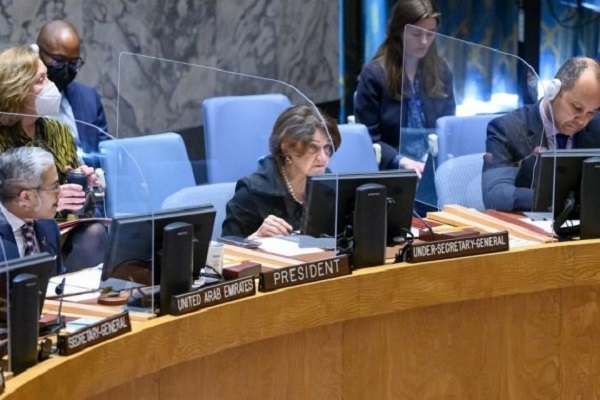
United Nations, (Asian independent) UN Undersecretary-General for Political Affairs Rosemary DiCarlo warned that the current political polarisation in Libya may lead to instability.
“Libya is now facing a new phase of political polarisation. It risks dividing its institutions once again and reversing the gains achieved over the past two years,” Xinhua news agency quoted DiCarlo as saying during a briefing to the Security Council on Wednesday.
“We know from experience what unilateral actions, divided government, and an unending transition may hold in store for Libya.”
Libya’s House of Representatives withdrew confidence from Prime Minister Abdul-Hamid Dbeibah’s Government of National Unity in September 2021.
On March 1, the House of Representatives held a vote of confidence on a new government led by Fathi Bashagha and swore in the new government two days later.
In her address, DiCarlo said the UN received reports that the March 1 vote was marred by procedural flaws and threats of violence against some members of the chamber and their families. The shortcomings impacted the credibility of the process.
Dbeibah has rejected the legitimacy of the March 1 vote and said he will only transfer power to an elected government.
Bashagha, meanwhile, insisted he is heading the legitimate government.
Since the March 1 vote, the situation on the ground has remained relatively calm. However, there has been increasingly threatening rhetoric, growing political tensions and divided loyalties among the armed groups in western Libya, said DiCarlo.
As long as the standoff over executive legitimacy continues, Libya could again see two parallel administrations. This could lead to instability and possibly unrest and deal a severe blow to the prospect of elections, she warned.
There have been worrying developments since the March 1 vote. Local flights between Tripoli and cities in eastern Libya remain suspended, while forces in western Libya supporting either side moved on March 9 and 10 toward the capital, she noted.
The UN continues to urge both parties to engage in a constructive dialogue to resolve the political impasse and to refrain from unilateral actions that could result in further divisions, said DiCarlo.
It also remains convinced that credible, transparent and inclusive elections based on a sound constitutional and legal framework are the only solution to the current stalemate, she said.
The UN Secretary-General’s special adviser on Libya, Stephanie Williams, has continued her consultations with a broad cross-section of Libyan political and security actors and civil society, said DiCarlo, adding that the world body is focusing its efforts on building a consensus among Libyan institutions to hold elections as soon as possible.
The US aims to convene a joint committee of members of the House of Representatives, the Libyan parliament, and the High Council of State, an advisory body that has acquired legislative power, with the objective of achieving agreement by both bodies on a constitutional basis that would lead to elections this year, she said.
On March 3, Williams invited the speaker of the House of Representatives and the president of the High Council to appoint six members each to form this joint committee.
The leaders of both bodies responded favourably to the initiative.
On Tuesday, the High Council nominated its representatives to the joint committee.
The UN expects the House of Representatives to do the same in the coming days to avoid further delays in this process, said DiCarlo.
Separately, Williams has offered her good offices to mediate between Dbeibah and Bashagha to overcome the current political impasse.
DiCarlo asked members of the Security Council to convey the message of early elections to Libyan parties, to call for responsible leadership by institutions, and to remain united in support of UN efforts to assist Libya in its path to becoming a peaceful and stable country.







